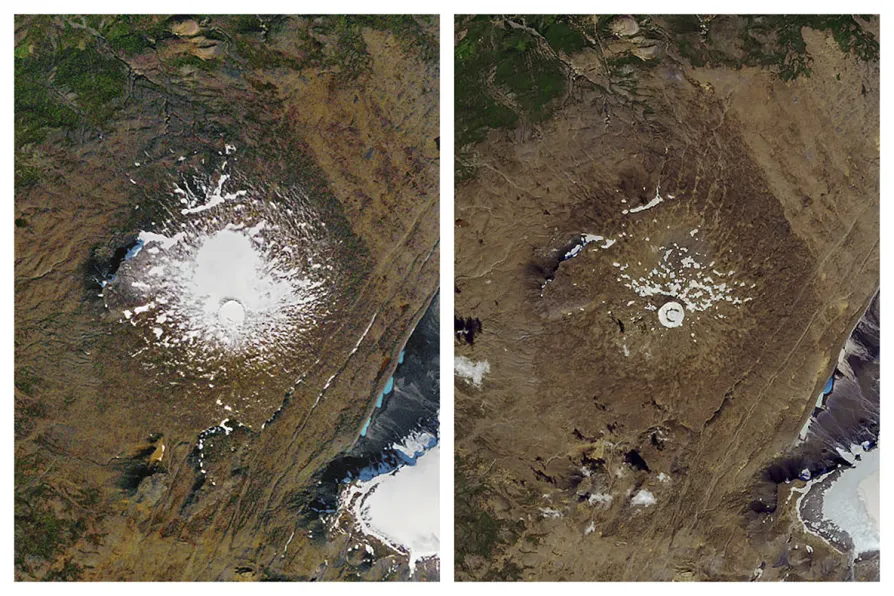
 This combination of September 14, 1986 (left), and August 1, 2019 shows the shrinking of the Okjokull glacier on the Ok volcano in west-central Iceland
This combination of September 14, 1986 (left), and August 1, 2019 shows the shrinking of the Okjokull glacier on the Ok volcano in west-central Iceland
THE world’s glaciers are disappearing faster than scientists thought, with two-thirds of them projected to melt out of existence by the end of the century at current climate change trends, according to a new study.
The study in Thursday’s journal Science examined all of the globe’s 215,000 land-based glaciers — not counting those on ice sheets in Greenland and Antarctica — in a more comprehensive way than past studies.
Projected ice loss by 2100 ranges from 38.7 trillion metric tons to 64.4 trillion tons, depending on how much the globe warms and how much coal, oil and gas is burned, the study said.

As the Alliance of Sahel States and southern African nations advance pan-African goals, the African Union must listen and learn rather than parroting the Western line on these positive developments, writes ROGER McKENZIE

Money makers already exploit cleaning and catering contracts while the military-industrial complex diverts billions from health to warfare — but Bevan’s vision will endure as long as people fight for it, writes ROGER MCKENZIE
















